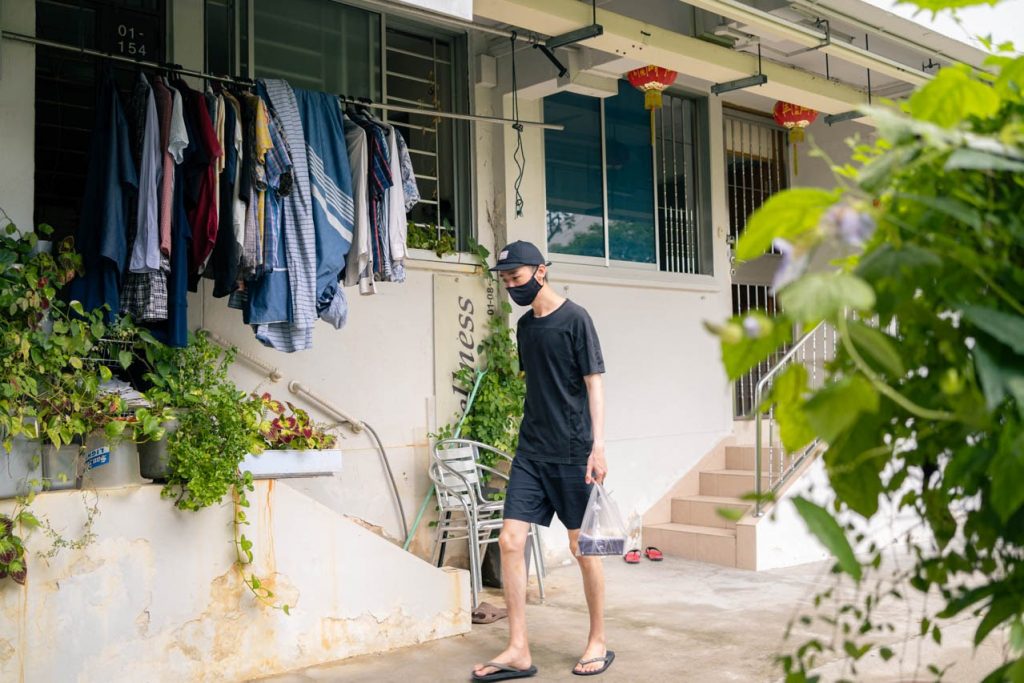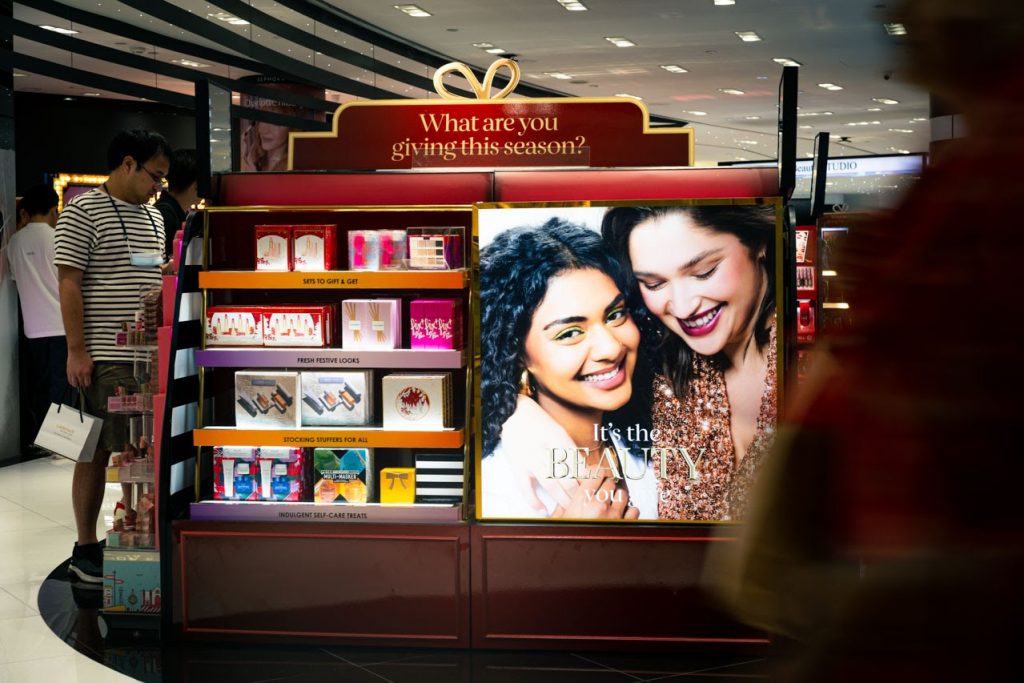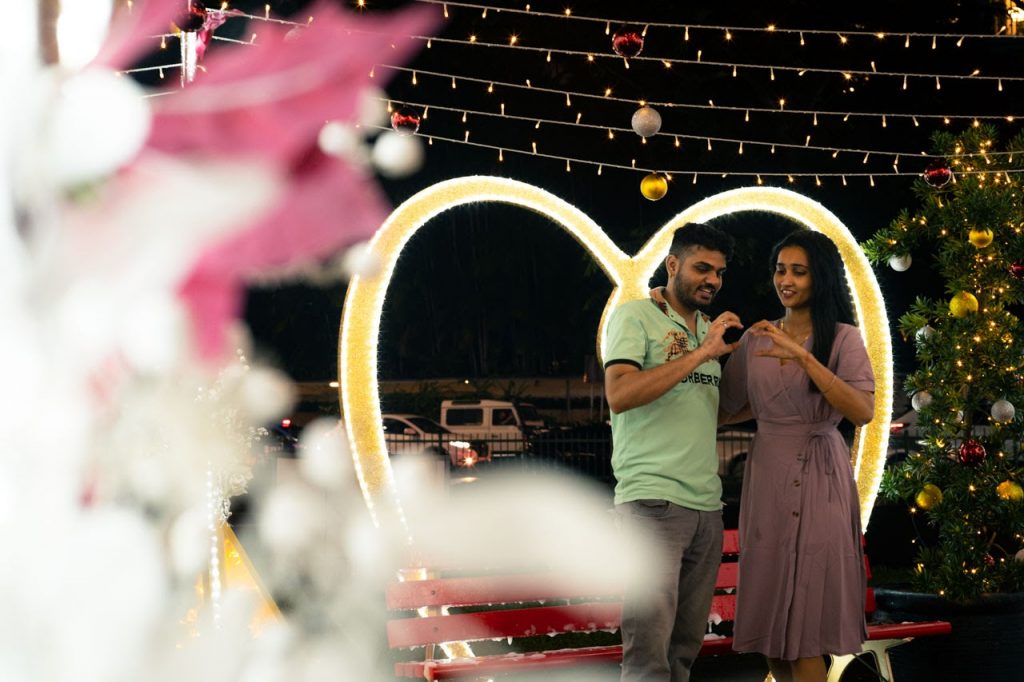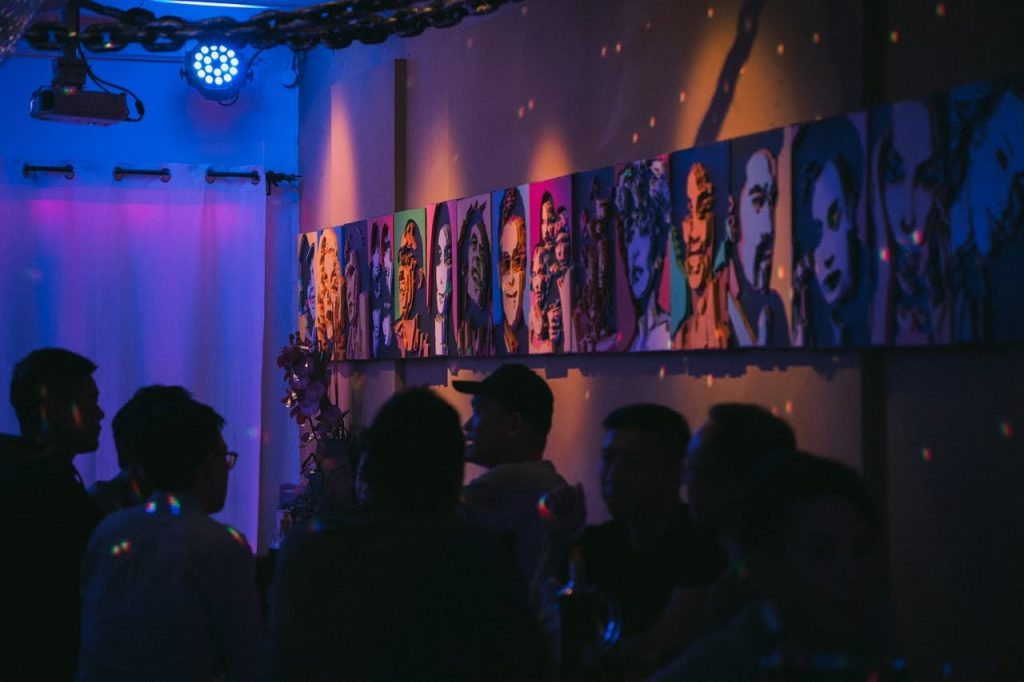Top image: Stephanie Lee / RICE file photo
When Tabitha* was in secondary school, she would ‘assign’ herself to have a crush on a particular boy—even though she felt nothing towards him.
“I wanted to try and fit in,” says the nurse. Sipping on green tea, she explains that she just needed to give an answer whenever someone asked her who she was attracted to at that time.
“Everyone was having crushes and felt that they needed to go out with their friends as boyfriend or girlfriend,” the 21-year-old adds.
“But I realised I didn’t really feel that way.”
Tabitha has been identifying as an aromantic for the last four years. Often shortened to ‘aro’ when describing their orientation, these individuals feel little to no romantic attraction to others.
Aromanticism exists along a spectrum. On one end, some experience no romantic attraction at all. Others feel it less intensely, less frequently or only after building a strong enough emotional connection with a person.
Clearly, this impacts the traditional Singaporean dream: find a romantic partner, get married, buy a BTO, and (maybe) start a family. Our housing policies are built on encouraging Singaporeans to fall in love and live happily ever after as productive contributors to society. Preferably with kids.
People grow up believing they will eventually find their ‘other half’ and settle down. But those on the aromantic spectrum may not feel the same way.
How does this minority group chart its own course? How did aros feel when Prime Minister Lee Hsien Loong recently urged citizens to have more babies during this dragon year?
We speak to Singaporean aros to learn more about the types of love they do have—and how they’ve come to terms with knowing that their soulmates are, in fact, themselves.

Growing Up Different
Aces Going Places, a community for aromantics and asexuals in Singapore, has about 200 members on its Discord server. Globally, the people who identify as such comprise about 1 per cent of the population, according to UC Santa Barbara’s Resource Centre for Gender & Sexual Diversity.
The Relationship Room counselling director Theresa Pong shares that the experiences aros had growing up may have influenced them to view the idea of relationships from other perspectives. It pushes them to value companionships and partnerships instead of romance.
But with aromanticism being a little-known phenomenon, peers and loved ones often make comments that cause aros to doubt their own identity. Tabitha, for instance, struggled as a teenager while trying to figure out who she was.
“Part of why I had been reluctant to identify as an aromantic was because I thought I was just a late bloomer,” she says. “I think there is an assumption that young adults who are not into dating would still eventually get married once they ‘find the right person’”.
She gives an example of how her aunts and uncles would tell her that “these things take time”—an implicit suggestion that marriage will come further down the road no matter what.

Megan Tan has a similar story. The 27-year-old admin assistant gets annoyed by friends who tell her to start dating someone first and think about the journey afterwards. Voice rising in frustration, she shares how when she told them she was not interested in finding a partner, they would hit back with “you’ll be interested later“.
It can be easy for outsiders to dismiss their experiences. Since the label did not gain wider use or understanding until recent years, all my interviewees are in their 20s or early 30s—the age when most other Singaporeans would still be looking for a partner.
But think about how it would feel to have your identity questioned at every turn. It’s exhausting to rebut everyone repeatedly; it’s exasperating that you are always treated like an outcast just for being yourself.
Accepting his identity has helped freelance artist Wayn L, 24, to realise that he could never force himself into romance.
“If straight people don’t need to experiment to figure out that they are straight, then it should be the same for any other identity,” he reasons.
Love Beyond Romance
With romance off the table, how do aros define love? For many of them, love is not only a concept shared between couples—but something that they can give to their friends, family and themselves.
Tabitha loves writing fiction and is passionate about causes such as women’s rights. She admits that she finds it difficult to ‘feel’ love, but she tries to show it through her actions. She listens to friends when they have personal issues, sends them pictures and videos they might like, and gives them food.
“Love is something that is most meaningful when expressed and done, more than felt. I may not want to express love in the form of a wife, but there are plenty of other ways I can express love to many other people,” she says.
Test engineer James R, 30, places friendships and romantic relationships on the same pedestal. He feels that his love in friendships is equally as strong as in romance, and there would be no difference in how much he invests in them.
Echoing this sentiment, engineering student Athena Lim shares that while a life without romantic relationships is more widely accepted nowadays, it “typically implies making a choice at the expense of giving up romance”.
“To me, it feels like I’ve been living a life without having to choose between; I don’t feel like I’m giving up anything at all,” the 21-year-old laughs.
The undergraduate adds that she expresses love to her friends by hugging them and buying them funny trinkets. She firmly thinks that everyone should have the chance to receive flowers at least once in their lives. “I don’t get why some of these gestures are seen as ‘romantic’”.

Chiming in, James says he has difficulties reading into subtexts when it comes to thoughtful actions directed at others. For example, when someone sends a message to ask if they can go out for dinner, that’s just a friendly gesture. It “makes no sense” for him to make a connection that it could be romantic.
Tabitha believes that romance is not the only type of relationship people can derive happiness from and that you don’t need a partner to complete yourself. It also irks her that some people feel men and women cannot be friends. She shares that she has a best friend who is a guy, and people around her keep asking her if they’re dating.
“There’s this assumption that if you have a husband, if you have a wife, that’s the relationship that’s a priority in your life. It’s your husband and wife, then your children, then your parents, your siblings, your other family members, and then your friends,” she explains.
“There’s this hierarchy of relationships. But sometimes you don’t have a partner. And sometimes your friends are the most important people in your life. Or sometimes like, why should all these relationships have a hierarchy in the first place? They’re all people that you care about.”

Freedom in Solitude
We all reach a point in our lives when our friends suddenly start bombarding us with wedding invitations before they drift away and spend all their time with partners and children.
It’s pretty much what’s expected in Singaporean life. There’s a fancy term that describes this: amatonormativity. It assumes a norm where everyone looks for romance, and that unpartnered people are inherently lonely.
Amatonormativity also reveals how society is structured around married couples. In the Singapore context, that means BTO eligibility and tax savings for families. The system is built for nuclear families, affording them greater financial and social security.
Grants and subsidies are more accessible to married couples and those with children. Parents can claim up to $20,000 per child in tax rebates. Some insurance packages offer more attractive deals to families.
The most pressing problem is that singles like aros have to wait until they are 35 before qualifying to buy a public flat—a non-existent requirement for heterosexual couples who want to settle down.

But is pairing up the only formula for finding happiness? For aros who stray from this linear trajectory, what is their idea of a fulfilling life in Singapore?
Tabitha remarks cheekily that it is interesting how much happiness is assumed in romance because the thought of being with a man actively makes her unhappy.
Wayn’s eyes brighten when he talks about his future. Sporting a carefully gelled-up mohawk and chic haori draped over a black shirt that reads ‘I have ADHD’ in the iconic AC/DC font, it’s clear that he’s destined for a career in the creative arts.
“I want to make a living out of my art and live comfortably on my art,” he enthuses. “I would love to have a house that’s big enough not just to have space for my art, a music studio to make music, a workout space, but also have enough space for animals.”
“In Singapore, that’s tough. But that’s like the ideal future,” he adds.
“A lot of societies see things through a very romantic lens of like ‘Oh, you’re really close to this person who isn’t your family, you’ll probably end up in a relationship with them’. There’s not any of that pressure with cats, dogs, or animals in general. You just hang out with the animals, and they’re happy to see you,” the feline lover gushes.
For James, happiness is being with peers in the community who nurture him and make him feel comfortable. It’s why he’s an executive committee member of Aces Going Places, along with Athena and Wayn.
“It’s about finding your own people, finding the places that give you love, which doesn’t necessarily have to be the monogamous kind of love where it’s just between a couple. It’s about knowing when to give love back to the people who make you feel loved.”

‘Aromantics Exist’
Aros’ lives are fraught with challenges. Being in the minority whilst navigating an amatonormative society is hard enough. Feeling invisible in a space presumably supposed to include you is even worse.
That’s how people on the aromantic spectrum feel when they talk about interacting within wider LGBTQ sectors.
“Sometimes, you’ll see people debating whether aros are even LGBTQ+ because there’s the concept of ‘straight-passing’,” says Athena.
“There’s an argument that says that you don’t experience as much discrimination and therefore you’re not LGBTQ+. It’s quite messy.”
Athena adds that promoting awareness about aros in the media is much harder. Unlike depictions of gays or lesbians, where they can show two people of the same gender holding hands, there is no such physical representation for aros.

Drinking or partying is also common at LGBTQ+ events. This may not always be conducive to aros because there’s an expectation that people go there intending to find a partner, Athena explains.
James delves into misconceptions that outsiders have. While aros don’t seek romance, he hates the fact that people think they do not express themselves sexually, making others believe that aros are as inexperienced and innocent as children.
“It’s not true. It feels that they are invalidating and infantilising us, which is demeaning,” he sighs. To counter this, he brought up Yasmin Benoit, a British lingerie model who is also an aro and asexual activist.
What ‘Normal’ Means
Like all humans, aros explore, navigate and express connections with others in a myriad of ways. Several issues facing the community have been discussed here, but aros’ experiences are so diverse that they cannot be distilled into a single article.
There’s a list of micro labels to describe the degrees to which aros feel romantic attraction. There are stories of aros who’ve decided to attempt romantic relationships to varying results. Aros can also be aesthetically drawn to people despite not desiring them as a romantic partner.
Some aros identify as asexuals, too, which is a separate concept in the sense that asexuality centres on the lack of experiencing sexual attraction.
Addressing fellow aros on the spectrum, James hopes they will not be shy about embracing the label and showing who they are. He wants them to know they are not alone because others are going through similar struggles.
“Try not to get lost in the sea of what is ‘normal’. You are not broken. Your experiences are real. You exist. And you are valid.”






